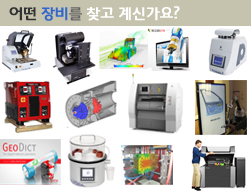| 타이틀 |
Space Shuttle Guidance, Navigation, and Rendezvous Knowledge Capture Reports : Revision 1 |
| 저자 |
Goodman, John L. |
| Keyword |
CATALOGS (PUBLICATIONS); DOCUMENTATION;; LESSONS LEARNED;; MANNED SPACECRAFT;; SPACE NAVIGATION;; SPACE SHUTTLES;; SPACECRAFT TRAJECTORIES |
| URL |
http://hdl.handle.net/2060/20110023477 |
| 보고서번호 |
JSC-66136, Revision 1 |
| 발행년도 |
2011 |
| 출처 |
NTRS (NASA Technical Report Server) |
| ABSTRACT |
This document is a catalog and readers guide to lessons learned, experience, and technical history reports, as well as compilation volumes prepared by United Space Alliance personnel for the NASA/Johnson Space Center (JSC) Flight Dynamics Division.1 It is intended to make it easier for future generations of engineers to locate knowledge capture documentation from the Shuttle Program. The first chapter covers observations on documentation quality and research challenges encountered during the Space Shuttle and Orion programs. The second chapter covers the knowledge capture approach used to create many of the reports covered in this document. These chapters are intended to provide future flight programs with insight that could be used to formulate knowledge capture and management strategies. The following chapters contain descriptions of each knowledge capture report. The majority of the reports concern the Space Shuttle. Three are included that were written in support of the Orion Program. Most of the reports were written from the years 2001 to 2011. Lessons learned reports concern primarily the shuttle Global Positioning System (GPS) upgrade and the knowledge capture process. Experience reports on navigation and rendezvous provide examples of how challenges were overcome and how best practices were identified and applied. Some reports are of a more technical history nature covering navigation and rendezvous. They provide an overview of mission activities and the evolution of operations concepts and trajectory design. The lessons learned, experience, and history reports would be considered secondary sources by historians and archivists. |





















